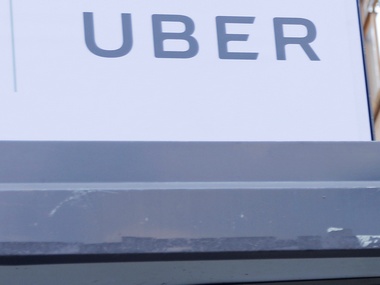The
**death of a pedestrian hit by a self-driving Uber** vehicle in Arizona this week could offer a test of who can be held legally responsible for accidents when a human is no longer at the wheel, legal experts said. [caption id=“attachment_4398985” align=“alignleft” width=“380”] Uber logo. Reuters[/caption] Any litigation that arises from the accident, the first fatality involving a fully autonomous vehicle, could pit the ride-hailing service against technology suppliers and the vehicle’s manufacturer, legal experts said. It could also provide a window into confidential indemnification agreements that companies developing self-driving car systems may have reached to shield themselves legally. In Sunday’s accident, Elaine Herzberg, 49, was walking her bicycle outside the crosswalk on a four-lane road in the Phoenix suburb of Tempe when she was hit by the Volvo XC90 SUV, which was travelling in autonomous mode at about 40 miles per hour, police said. Tempe Police Chief Sylvia Moir, who saw video of the crash, told the San Francisco Chronicle late Monday that it “would have been difficult to avoid this collision in any kind of mode (autonomous or human-driven) based on how she came from the shadows right into the roadway.” The Tempe Police Department said in a statement later that the department does not determine fault in vehicle collisions. “Ultimately the investigation will be submitted to the Maricopa County Attorney’s Office for review and any potential charges,” it said. It was not clear whether a lawsuit would be filed on behalf of Herzberg’s estate. Bryant Walker Smith, a law professor at the University of South Carolina with expertise in self-driving cars, said most states, including Arizona, require drivers to exercise due care to avoid hitting pedestrians on a roadway, even if the pedestrians use an unmarked crosswalk. Sergei Lemberg, a California-based lawyer who has brought several lawsuits against self-driving car manufacturers, said that Uber, Volvo, which manufactured the sport utility vehicle, and any companies that supplied self-driving technology could potentially be held liable if litigation ensued from the Tempe accident. The “safety” driver who was behind the wheel but who appears not to have operated the vehicle could also be named as a defendant, Lemberg said. “Suing all these parties would be my top thought right now,” he said. Uber said in a statement it was fully cooperating with local authorities investigating the accident. Volvo, the Swedish car brand owned by China’s Geely, confirmed its vehicle was involved in the crash but said the software controlling the SUV was not its own. Volvo said in 2015 it would accept full liability when one of its vehicles equipped with its own self-driving system was in autonomous mode. The company said in 2017 it had agreed to supply Uber with 24,000 self-driving vehicles. Until now, most litigation over non-fatal accidents involving self-driving vehicles has been confidentially settled, according to legal experts. A case in which a motorcyclist sued General Motors after a collision last year with one of the company’s autonomous test cars in San Francisco is pending. GM has said in a statement regarding the lawsuit that in its collision report the San Francisco Police Department determined that the autonomous vehicle was not at fault in the accident.
Any litigation that arises from the accident could pit the ride-hailing service against technology suppliers and the vehicle’s manufacturer.
Advertisement
End of Article


)
)
)
)
)
)
)
)
)



